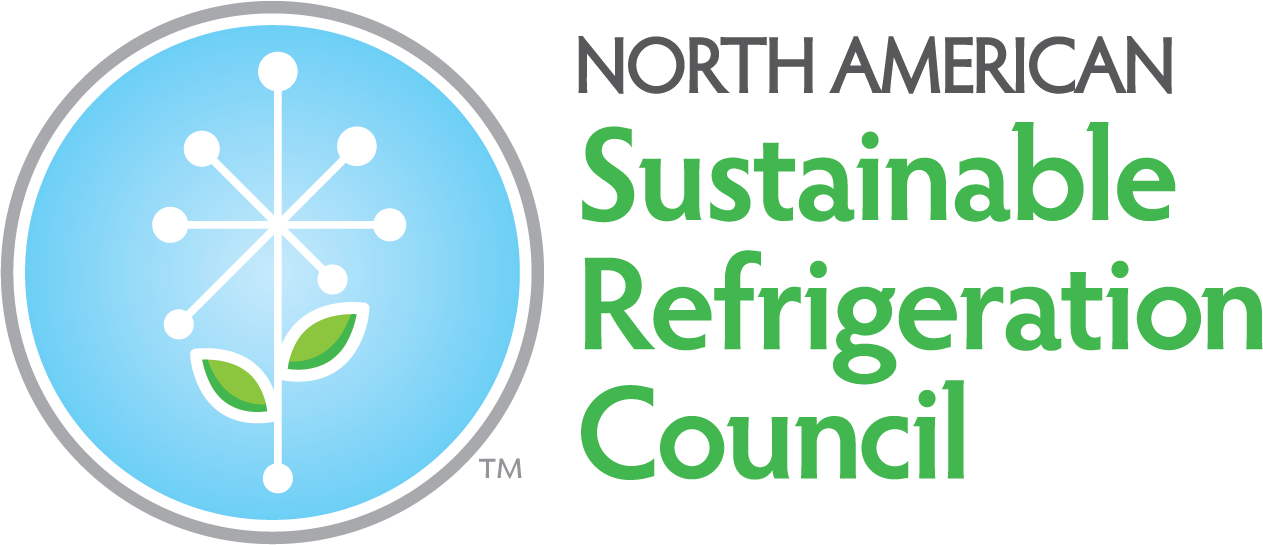|
|||||||||||||||||||||||||||||||||||||||||||||||||||||||
|
|||||||||||||||||||||||||||||||||||||||||||||||||||||||
|
Groundbreaking Refrigerant Carbon Credit™ Pilot Program Rewards Grocers for Climate-Friendly Refrigerant Choices
North American Sustainable Refrigeration Council Pilot Program announced the issuance and retirement of carbon credits on behalf of grocers
LAKE FOREST, ILLINOIS: Therm, North America’s leading refrigerant carbon offset developer, today announced the successful sale and retirement of its issuance of Refrigerant Carbon Credits™ from the North American Sustainable Refrigeration Council Pilot Program. Carbon financing allows grocery retailers and other foodservice providers to switch to climate-friendly refrigerants at lower capital costs by selling the credits created by the projects through the voluntary carbon market. These projects’ Refrigerant Carbon Credits sold at a significant premium to the current rate of similar credits. Projects included refrigeration rack replacements to CO2 as well as micro-distributed and stand-alone cases.
The credits were issued by the American Carbon Registry and purchased and retired by longtime voluntary carbon market experts Climate Impact Partners on behalf of an established market participant.
“Climate-friendly refrigerants are the number one way that we can prevent further climate damage,” said Fritz Troller, CEO and co-founder of Therm. “The increasing price of carbon credits, and the undisputed permanence of RCCs, put them at a market premium, and help our retail grocer customers and food distributors by providing meaningful financial incentives.”
The credits were developed for five mid-sized grocery locations in California for customers Grocery Outlet and Raley’s, two members of the North American Sustainable Refrigeration Council. They chose to install climate-friendly refrigeration systems and forgo the use of traditional synthetic refrigerants—short-lived climate pollutants that are thousands of times worse for the environment than carbon dioxide. The impact of these traditional refrigerants is so large that, in 2017, refrigerant management was identified by Project Drawdown as the number one solution to combat climate change.
“We have many clients throughout the world who are looking for innovative new approaches to reducing emissions reaching ambitious climate goals,” said Saskia Feast, Managing Director of Global Client Solutions at Climate Impact Partners. “We are delighted to have partnered with Therm, NASRC, Grocery Outlet, and Raley’s in order to demonstrate how this type of credit can make a real impact right now.”
Cooling and refrigeration system upgrades are typically associated with high capital costs, limiting viable options to reduce climate-polluting refrigerants. Refrigerant Carbon Credits function as a type of rebate for stores, enabling them to lower the capital required to make the change.
“The success of our Pilot Program is a vote of confidence from the carbon market,” said Danielle Wright, Executive Director of the North American Sustainable Refrigeration Council. “We are seeing more and more grocers of this size who are interested in switching to climate-friendly refrigerants but can’t find the capital. This creative structure opens the door for even the smallest stores to finance their refrigerant upgrades.”
Therm works with grocers and foodservice providers of all sizes to implement climate-friendly cooling and refrigeration upgrades through Refrigerant Carbon Projects. Learn more at therm.cool. Watch their presentation on carbon financing at NASRC’s 2022 Sustainable Refrigeration Summit here.
About Therm
Therm is North America’s leading Refrigerant Carbon Credit™ developer, helping the grocery industry adopt climate-friendly systems at a lower capital cost. Therm brings together a team with rich industry backgrounds in HVAC/R, energy efficiency, carbon credits, facilities management, and cooling technology. For more information, visit therm.cool.
About North American Sustainable Refrigeration Council
The North American Sustainable Refrigeration Council (NASRC) is a 501(c)(3) environmental nonprofit working to advance climate-friendly natural refrigerants and reduce greenhouse gas emissions caused by traditional hydrofluorocarbon (HFC) refrigerants. We collaborate with stakeholders from across the industry, including over 38,000 food retail locations, to eliminate the barriers to natural refrigerants in supermarkets. For more information, visit nasrc.org.
Can Carbon Financing Scale Natural Refrigerant Adoption?
What Is Carbon Financing?
Carbon financing is a financial mechanism that leverages the revenue from the sale of carbon-offset credits to reduce the initial capital costs of projects that result in greenhouse gas emissions reductions, such as natural refrigerant installations. Carbon-offset credits are determined based on emissions reductions that have been quantified and verified by an approved protocol.
Why Is This Important for Supermarket Retailers?
Amidst increasing regulatory pressures to transition away from traditional hydrofluorocarbon (HFC) refrigerants, a growing number of US grocers are looking to climate-friendly natural refrigerants as a future-proof option. But upfront cost premiums associated with natural refrigerant technologies remain the greatest barrier preventing the transition. Incentives and other funding support can offset upfront costs and make natural refrigerants a more feasible business choice, but there are currently no funding sources to support the transition on a national level.
How Can It Apply to Natural Refrigerants?
Refrigerant carbon-offset credits are based on the emissions avoided by installing a natural refrigerant-based system instead of or in replacement of a high-global warming potential (GWP) HFC system. Credits are quantified using the American Carbon Registry’s Methodology for Advanced Refrigeration Systems. The methodology is currently being updated to reflect requirements under the new American Innovation & Manufacturing (AIM) Act, but projects completed in 2020 are still eligible for credits in the meantime.
How Much Funding Are We Talking About?
Carbon-offset-credits are measured in terms of tons of carbon dioxide-equivalent (CO2e). The price per ton will vary depending on whether the credits are sold on the voluntary or compliance market and how much the buyer is willing to pay. Carbon credit prices range greatly but are typically valued between $5 and $25 per ton. We estimate that a typical supermarket system project using natural refrigerants could qualify for $5,000 to $25,000 in carbon financing revenue.
But the real opportunity is the potential future value of the credits. Earlier this year, a senior official with the Bank of England predicted that carbon prices could increase to $100 per ton by 2030 due to more stringent pollution allowances that will result from countries acting on their Paris Agreement commitments. Under those conditions, a typical supermarket could qualify for over $100,000 in carbon financing revenue, which could tip the scales to eliminate natural refrigerant cost barriers and allow for their widespread adoption.
NASRC Carbon Financing Pilot
To stimulate a scalable market of refrigerant carbon-offset credits, NASRC has launched a pilot to establish both a supply and demand for refrigerant carbon-offset credits and demonstrate the potential. To that end, we are applying the methodology to several natural refrigerant systems installed in grocery stores in 2020. We expect to complete the pilot by early next year. The long-term goal is to leverage carbon financing to support the volumes of adoption needed to trigger economies of scale and enable the widespread adoption of natural refrigerants.
Contact NASRC to learn more.
NASRC Releases 2020 Annual Report
NASRC 2020 Annual Report
Rising To the Challenge Together
2020 was a year filled with new and unfamiliar challenges, but together with our members and partners, we rose to the occasion and ultimately made 2020 our most impactful year yet!
We're proud to share NASRC's 2020 Annual Report, which summarizes the progress we made towards accomplishing our mission to make natural refrigerants a feasible business choice for supermarkets, including:
Developing and coordinating funding support to offset cost premiums
Accelerating training for contractors and technicians
Facilitating new pilot projects and field demonstrations
Creating new resources and educational opportunities
Thank you to our members for making all of our work possible!
Not a member yet? Get involved to be a part of the action.














